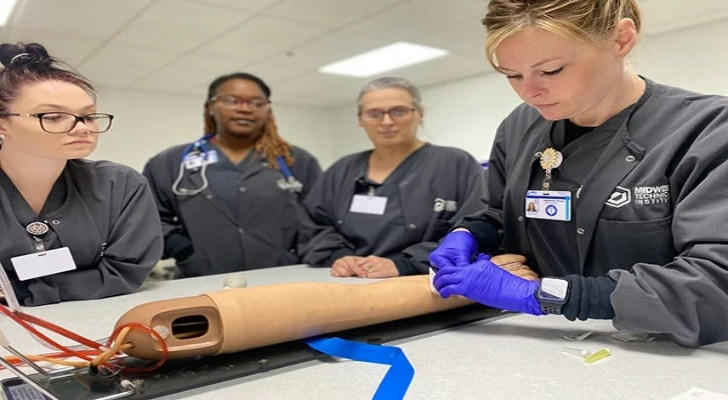Government-Supported Medical Assistant Training: Start an Affordable New Path in the Healthcare Industry
Entering the healthcare field can be challenging, especially when money and time are limited. Government-funded Medical Assistant (MA) programs offer a faster, more affordable path to gain the skills and certifications you need to embark on a solid healthcare career.

🌟 Why Choose an Accredited Medical Assistant Program?
Trusted Credentials: Completing an accredited MA program earns you a certification recognized by hospitals, clinics, and healthcare organizations nationwide.
Certification Opportunities: Programs accredited by organizations like CAAHEP or ABHES can help students prepare for nationally recognized exams like the CMA and RMA, enhancing their employability.
Flexible Learning Options: Many institutions offer online or hybrid learning options, with courses typically lasting 4-18 weeks, allowing students to balance study, work, and family life.
Career Development: Graduates can pursue further education and advance to positions such as Licensed Practical Nursing (LPN) or Registered Nursing (RN), broadening their career horizons.
Financial Aid: Colleges and universities, supported by government workforce programs, offer scholarships, grants, or installment payment plans to ease the burden of tuition.
📚 Overview of Government-Funded Medical Assistant Programs
Workforce Innovation and Opportunity Act (WIOA) Programs
Many states offer short-term master's and certificate programs funded by WIOA, providing tuition support to eligible students. These programs are short, combine classroom instruction with clinical practice, and can be applied for through local workforce centers.
Community College Partnerships
Community colleges across the United States offer affordable master's, certificate, and associate's degree programs. Many are funded by the government or workforce development funds, allowing students to choose a campus near them based on their needs.
Nonprofits and Workforce Training Centers
Nonprofits partner with state employment agencies to offer 10- to 16-week MA training programs, focusing on preparing students for certification exams such as CCMA, CMA, and RMA. These centers emphasize practical skills and job placement support.
Apprenticeships and Fast-Track Programs
Some regions offer government-funded accelerated MA training programs, lasting approximately 12 to 16 weeks, designed for unemployed or low-income individuals. These programs combine academic study with clinical internships to help students quickly enter the healthcare industry.
📈 Career Pathways After MA Completion
Successful completion of an accredited MA program opens up multiple pathways beyond entry-level positions:
Licensed Practical Nurse (LPN): Bridge programs enable MAs to advance their credentials, take on more clinical work, and increase their earning potential.
Registered Nurse (RN): Further study leads to the RN designation, which provides access to a wider range of practical and leadership opportunities.
Healthcare Administration: Experienced Master's Degree holders (MAs) can transition into management or training positions within healthcare organizations.
👩⚕️ Real-Life Success Stories
Emily, 23: Completed a 15-week online MA program and is currently pursuing a Licensed Practical Nurse (LPN) degree while working part-time at a hospital.
Carlos, 35: Enrolled in a flexible online MA program, balancing study with a part-time job. After graduation, he secured a job at a community clinic, providing financial stability for his family.
Linda, 40: Returned to school, earned her MA certification on campus, and currently enjoys a stable career working full-time at a pediatric clinic.

📝 Apply to an Accredited Medical Assistant Program
Verify Accreditation: Make sure the program is accredited by organizations like CAAHEP or ABHES.
Choose the Right Learning Format: Choose between online, in-person, or hybrid learning options based on your schedule and learning preferences.
Gather Required Documents: A high school diploma or General Educational Development (GED) is typically required; some programs also require immunization records and a background check.
Learn Financial Aid: Explore publicly funded scholarships, grants, or installment payment plans.
Submit Your Application: Contact the program's admissions office to apply and discuss your career goals.
